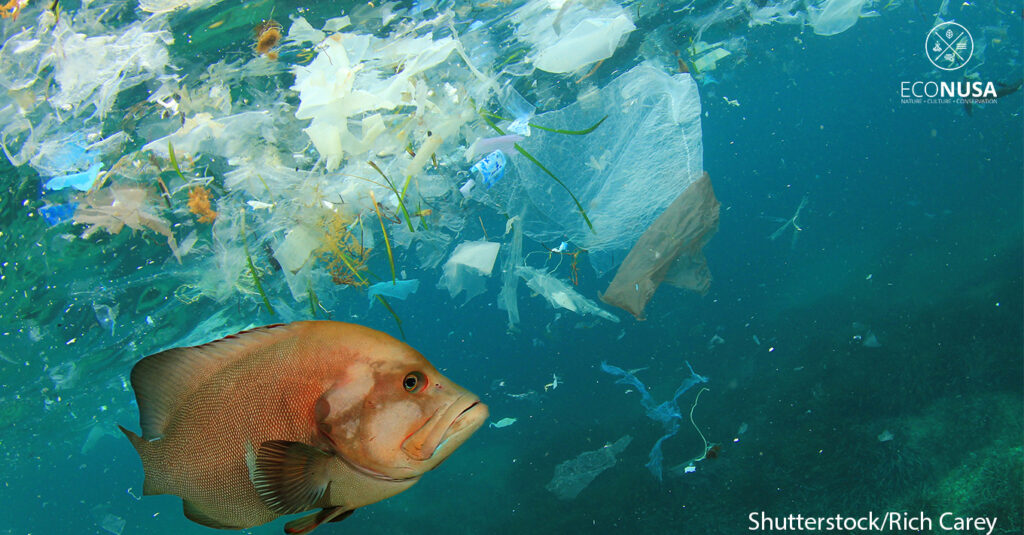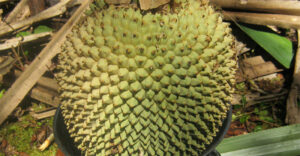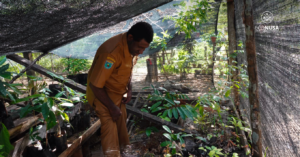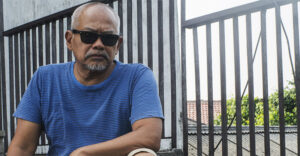
Microplastic is plastic particle or fibre of less than 5 millimetres that could pose environmental pollution. There two kinds of microplastic, primary and secondary microplastics. The primary microplastic is polyethylene bids found mostly in cosmetics products and widely known as plastic bag. Microplastic could be found in the daily consumed food and water and this is very harmful to human health. High contamination of microplastic could lead to metabolism disruption, hormone disorder, cancer cell growth, allergic reaction, up to cell damage in human body.
This phenomenon has motivated Rika Tundan Iriani, a student of School of Science and Technology’s Aquaculture Department of Muhammadiyah Education University (UNIMUDA) of Sorong, to study microplastic in fish. Rika is one of the participants of the 2022 Papuan Young Scientist (IMP) in Manokwari, West Papua, said that initially she had not known what to study. She only hoped for a study which could give benefits to many peoples.
Having discussed her idea on microplastic with her lecturer, Rika started to undergo a desk research to collect data and information on microplastic in fish. Rika found many data and phenomenon that happen to some regions that causes microplastic to become global issues that need immediate handling.
Read Also: Jaring Nusa Urged Salvage of Coastal Communities and Small Islands in Eastern Indonesia
Then Rika attempted to conduct location survey surrounding her residence in Sorong City. She chose Remus Beach as the location of his study. The beach is very dirty and full with waste. However, Rika said that there are many fishers catch fish in this area. She then decided to study the microplastic that might exist along the beach of Sorong.
Rika shared that her study will be done within a month. She will take 15 fish as study samples. The fish will be taken from 3 different spots so that her study could represent the regions and study validity. The samples will be dissected by using some tools in the Aquaculture laboratory of UNIMUDA Sorong. “I need assistance from the lecturer because the study is important and could provide broad impact to peoples,” she said.
Rika’s intention to study microplastic in fish was then heard by Sorong City’s Head of Environment Office, Julian Kelly Kambu. Julian has thus far been one of the Office Heads who has serious concerns with plastic waste issues. “I seriously wait for the study results and am ready for organizing an open discussion forum involving city government, Regional Legislative Council, and relevant parties,” said Julian to EcoNusa.
Read Also: Enthusiasm of Mangrove Class at Jamnas XI 2022
This information raised Rika’s spirits to prompt her study. She has currently waited a delivery of the required tool for her laboratory study. “The stuff should be delivered from Jakarta or Surabaya,” said Rika.
In her presentation, Rika expected that her family, relatives, and colleagues would not consume fish containing microplastics. “I wish that all peoples consume healthy fish,” she said on the IMP closing ceremony.
West Papua Province’s Research and Development Agency (Balitbangda) in cooperation with EcoNusa held an intensive training or bootcamp for Papuan Young Scientists (IMP) on 1-3 September 2022 in Manokwari, West Papua. The IMP bootcamp was attended by 25 students from some universities in Tanah Papua. They consist of 10 students from Cenderawasih University, 8 from Papua State University, 2 from Manokwari Agriculture Development Polytechnique (Polbangtan), 4 from Muhammadiyah Education University of Sorong, and 1 from Victory University of Sorong. During bootcamp, the young researchers were assisted by 8 mentors from UNIMUDA Sorong, Victory University of Sorong, Cenderawasih University, Papua University, and Polbangtan of Manokwari.
Editor: Leo Wahyudi




